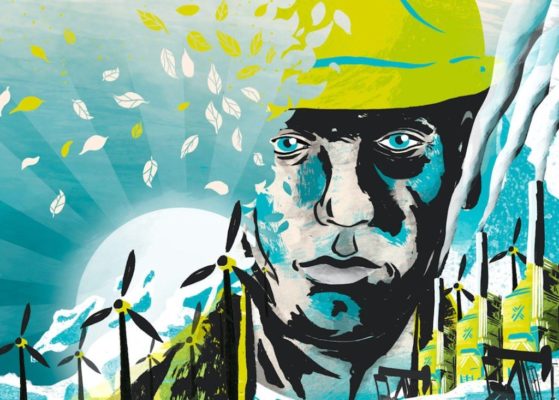EcoUnions
EU-funded Marie Skłodowska-Curie project
Tackling the global crisis of human-induced climate change is the most urgent challenge of the 21st century. To help surmount this challenge the European Union has subscribed to the Paris Agreement and the seventeen goals of the United Nations 2030 Agenda for Sustainable Development. Transitioning to a low carbon economy requires a broad coalition of government’s, supranational institutions, corporations, and civil society actors. Among these, trade unions have a crucial role to play because the most significant path to decarbonization will be through a transformation of industrial production, which accounts for more than 80 per cent of all Europe’s total carbon emissions. While trade unions have a demonstrated capacity to help make industrial processes more sustainable, their action is limited by a constant “jobs versus environment’ dilemma between protecting the environment and protecting jobs in polluting industries, which millions of their members depend on for their livelihoods.
‘Transitioning to a Low Carbon Economy: Trade Unions and the Jobs versus Environment Dilemma’ (EcoUnions) is a project aimed at producing new knowledge on how trade unions are navigating the “jobs versus environment” dilemma. More specifically, it focuses on two new labour-environmental coalitions comprising trade unions, environmental organisations, and social justice organisations. Theoretically, the goal of Eco-Unions is to develop a multi-level analytical framework that can help guide future enquiry and allow for a holistic understanding of the interconnected arenas in which trade unions are navigating the “jobs versus environment” dilemma: internal union strategizing, climate policy-making, and public debate. Empirically, Eco-Unions is conceived as a comparative, interdisciplinary, and multi-method project that a) examines and compares the approach of labour-environmental coalitions in Denmark and the United Kingdom, b) explores how internal and external dynamics shape trade union action, and c) determines what role trade unions play in public debate on the green transition.
